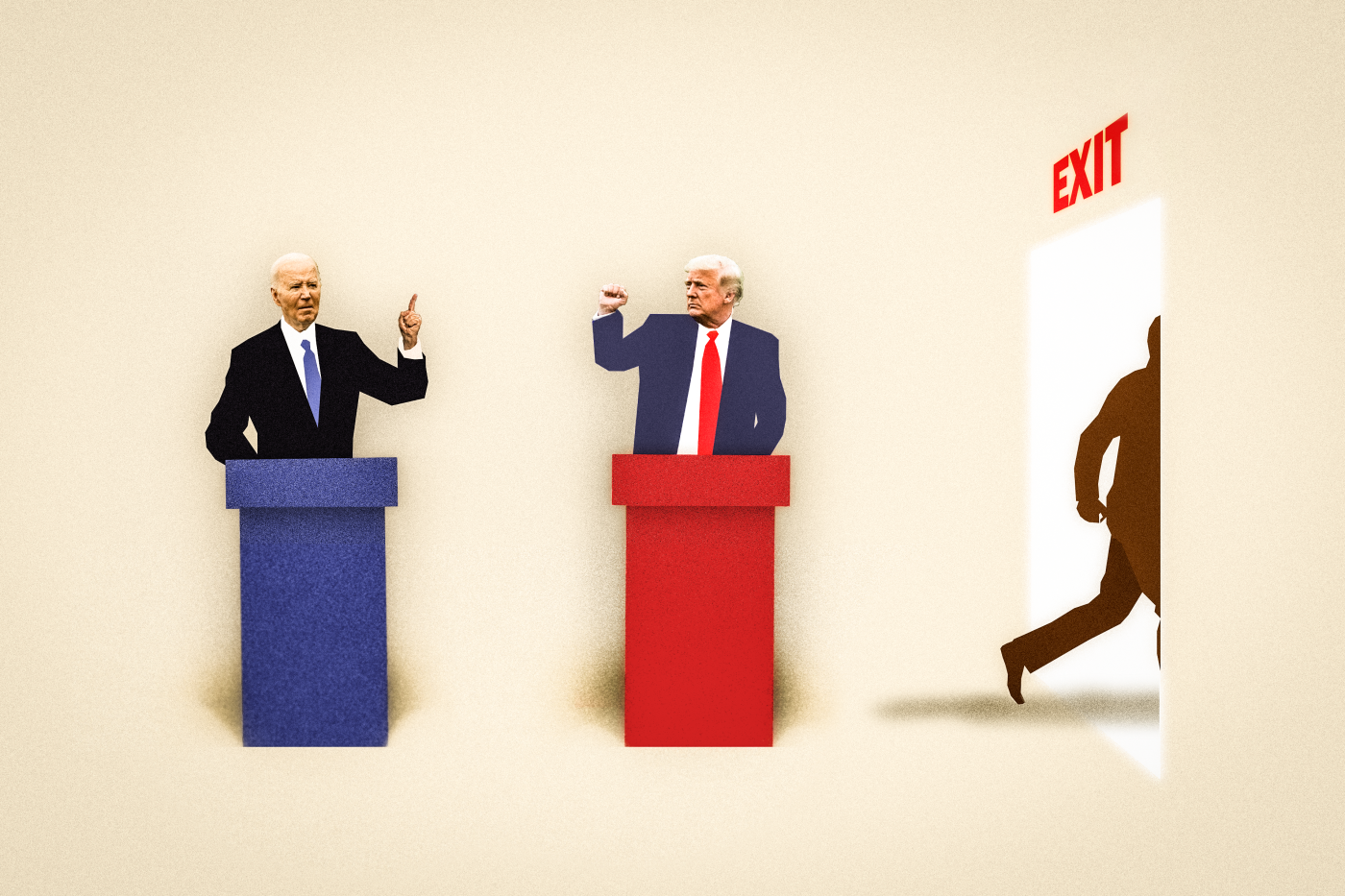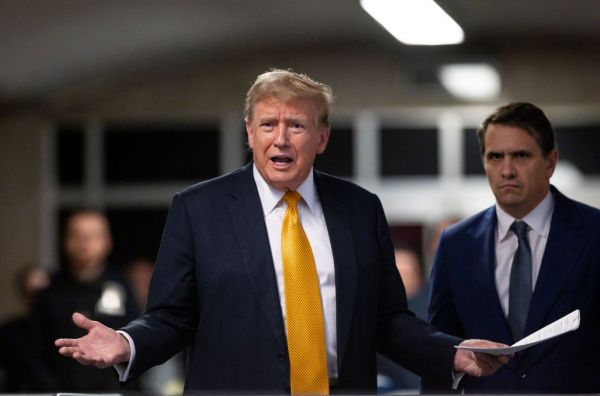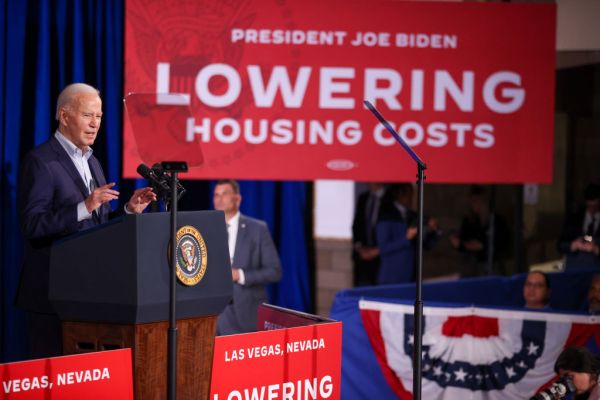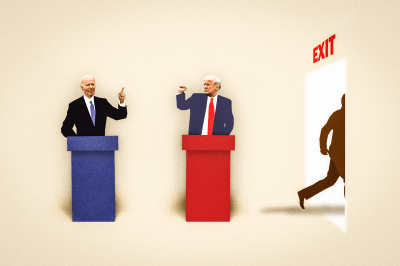In the spring of 2012, I found myself alone for several minutes in a network green room with Ben Bradlee, the legendary editor of the Washington Post, who was at the helm of the paper during its glory days of the Pentagon Papers and Watergate.
It being an election year, our conversation turned to politics and Bradlee told me something that was utterly surprising coming from a veteran Washington editor: that he didn’t vote in elections. Why? He didn’t want to compromise his judgment as a journalist and editor by forming an attachment to candidates he’d voted for and would later have to publish stories about.
Though outwardly I nodded my head politely, I remember inwardly scoffing. “Come on,” I was thinking. “You’re famously liberal, and the paper you ran for years has been a reliable organ of the center-left in this country, with documented bias in its news pages, let alone its editorial voice.” But I didn’t say any of that, and shortly afterward others were in the room. Bradlee, who was already over 90 at the time, died a few years later. It was the only time our paths crossed.
I’m not sure Bradlee was honest about not voting, but I now think there is something true about his stated rationale. We do form attachments to the candidates we vote for—especially if they win and wield power. We feel instinctively that we should defend what they do, even—or especially—when defending them is hard. When the president, or the senator or governor, is “my guy” because I voted for him, I feel something of my own integrity at stake. I’m inclined to rise in his defense. He has enemies? Of course he does—he’s in politics. They will be my enemies too.
As I said, I don’t know whether Bradlee was putting me on. He had a close personal friendship with John F. Kennedy from the time JFK was a senator, and he even wrote a book about it a dozen years after the president’s death. Did he really not vote for him in 1960? Maybe Bradlee settled on his habit of nonvoting in later years. But if he did at any time give up voting, then it freed him, as a journalist, to report on liberals as well as conservatives when the story wouldn’t be flattering to them. Liberal he might be, but perhaps not personally invested in any particular politician’s success.
Voting is a kind of investment. Not of our money, but of ourselves—our will, our intention, our passion, and our conscience.
For at the end of the day, that is what voting is: a kind of investment. Not of our money, but of ourselves—our will, our intention, our passion, and our conscience. Of course, our investment can be a light matter to us, if we cast our vote in a throwaway mood, thinking “better this guy than the other guy.” Then we might cut our emotional losses when he disappoints us. “Live and learn.” Yet paradoxically, if it took a great effort to “screw your courage to the sticking place,” as Lady Macbeth put it—if, that is, you had to swallow hard to vote for a candidate, and he won—you may find your investment in him very heavy, and your felt need to defend him equally so.
Eight years ago, I published an essay for Public Discourse about why I could not vote for either Hillary Clinton or Donald Trump. “Vote as if your ballot determines nothing whatsoever—except the shape of your own character,” the piece concluded. “Vote as if the public consequences of your action weigh nothing next to the private consequences. The country will go whither it will go, when all the votes are counted. What should matter the most to you is whither you will go, on and after this November’s election day.”
There is nothing in what I said then that I would now retract. I rejected the idea that I, as one individual, must treat my choice as confined to the binary of Clinton versus Trump, as though the weight of the outcome were on me alone. It is frequently the case that we vote for one major-party presidential candidate principally because we are against the other one—usually because we find “our guy” a less than optimal choice but “the other guy” strongly repellent. But when we conclude that both of them are wholly unfit for office, our habitual partisan commitments, and our fond hope that the one representing “our side” will be normal, or guided by normal people, do not compel us to cast a vote in that direction. What we must consider, I argued, is not our role in the outcome of the election (which is negligible, and unknown to us when voting), but the effect on our conscience and character of joining our will to a bad cause.
The last eight years have made me more certain I was right. In 2020, although the Trump administration had done some things I could applaud (Supreme Court appointments topping the list), I still found Trump himself wholly unqualified for an office he had never learned to respect or master. This was even before the insurrection of January 6, 2021, which, I have argued, constitutionally disqualified him. And Joe Biden? Please. He became my senator shortly before I entered high school, and I had long watched his career with consternation and loathing. I didn’t want to have to defend, even to myself, having cast a vote for either man, and once again I threw away my presidential vote on a hopeless write-in.
And here we are in 2024, with the same choice again. Only this time the overwhelming majority of voters have already voted at least once—successfully!—for these feckless men. That means the emotional investment of many voters in both Trump and Biden is very high, since each has a term as president to be defended—which ain’t easy to do in either case. Trump’s signature qualities were incompetence and recklessness, constrained to positive effect only by Congress, the courts, and many of his own appointees. Then he did his utmost, up until the evening of January 6, to steal the election from Joe Biden. A second term for Trump would be a four-year master class in indecency and mendacity, strongly inflected by an urge to authoritarianism that may sorely test our civic institutions.
Biden, as all can see, is showing many of the weaknesses of his advanced years (though here, Trump appears in better shape only by comparison). Never a strongly principled man even in his prime, Biden has long enjoyed an undeserved reputation as a “moderate” Democrat because he is a trimmer. Now his sails are trimmed to capture the wind that blows from his party’s hard left. As populism is the GOP’s most energetic element, progressivism is the Democrats’. Thus the worst excesses of the Elizabeth Warren faction in economics and of the intersectional “rainbow” factions in cultural issues are fully on display in the Biden administration’s governing agenda. A second Biden term would feature more of the same, unless the president’s freedom from electoral concerns enables him to move to the center. I see little hope of that.
Yet, barring some unforeseen event in the lives of these candidates, one of them is going to win in November and be inaugurated next January.
Is the responsible course of action to grit one’s teeth and choose one of them? Not necessarily. In the Washington Post, conservative columnists Ramesh Ponnuru and George Will have both made the case that a Bartleby approach (“I would prefer not to”) is a perfectly responsible choice. As Ponnuru writes, a candidate should meet “your threshold of acceptability” in order to earn your vote. And Will asks us to “imagine a dramatic upsurge in nonvoting that was explainable as a principled protest.” In an election year that features Cornel West and Robert F. Kennedy Jr. as off-brand fringe choices, writing in a name, skipping the presidential line on the ballot, or just staying home looks pretty good.
A vote for Biden would be contrary to an adult lifetime of conservatism. But I could write that sentence again almost verbatim, only substituting “Trump” for “Biden.” For a conservative like me, who has refused twice to vote for Trump, it is not that hard to refuse a third time. (What’s disappointing is the number of people I know who will vote for him a third time, despite everything.) Will voters who similarly sit on their hands, raising them for neither, determine the outcome? Possibly, in some sense—but that is not how matters will be seen when the dust clears in November. The winning candidate will claim, as winners do, a “mandate” no matter what.
What we “double haters” (in Ponnuru’s phrase) can at least say is that whatever happens after this election, we are not responsible for it, for only a cast ballot can impute responsibility. The year 2025, we can presumptively say now, will begin with the inauguration of a truly terrible president, and it will be a rocky four years from then on. Whichever man is in the Oval Office, I will be able to say, with grim satisfaction, that I have nothing invested in him and my conscience is clear. I am certain I have friends who will have voted for Trump, others for Biden. The hardest thing to do, I expect, will be to refrain from saying “I told you so” over and over. And like the late Mr. Bradlee, I’ll be able to criticize without casting doubt retrospectively on my judgment.






Please note that we at The Dispatch hold ourselves, our work, and our commenters to a higher standard than other places on the internet. We welcome comments that foster genuine debate or discussion—including comments critical of us or our work—but responses that include ad hominem attacks on fellow Dispatch members or are intended to stoke fear and anger may be moderated.
With your membership, you only have the ability to comment on The Morning Dispatch articles. Consider upgrading to join the conversation everywhere.